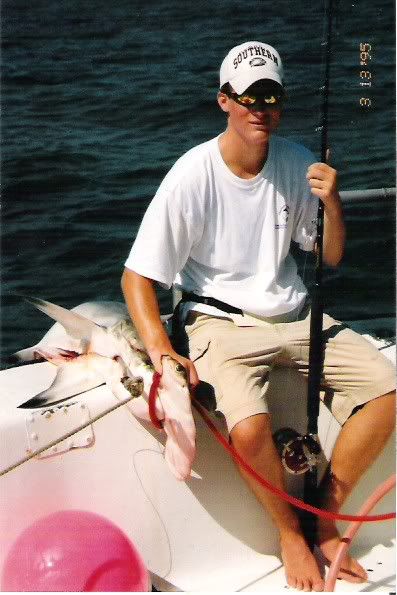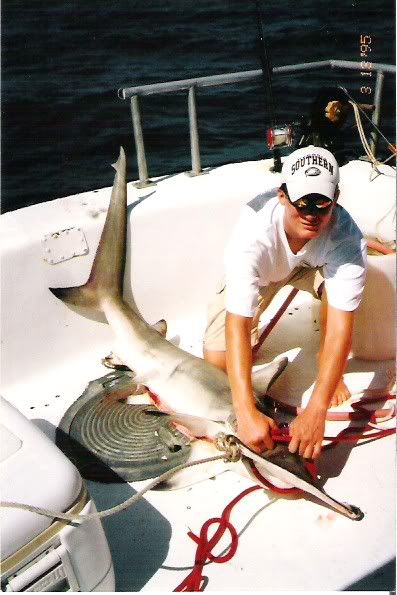Have a very nice day.NEW YORK - Touting tofu chowder and vegetarian sushi as alternatives, animal-rights activists have launched a novel campaign arguing that fish — contrary to stereotype — are intelligent, sensitive animals no more deserving of being eaten than a pet dog or cat.
Called the Fish Empathy Project, the campaign reflects a strategy shift by People for the Ethical Treatment of Animals as it challenges a diet component widely viewed as nutritious and uncontroversial.
"No one would ever put a hook through a dog's or cat's mouth," said Bruce Friedrich, PETA's director of vegan outreach. "Once people start to understand that fish, although they come in different packaging, are just as intelligent, they'll stop eating them."
The campaign is in its infancy and will face broad skepticism. Major groups such as the American Heart Association (news - web sites) recommend fish as part of a healthy diet; some academics say it is wrong to portray the intelligence and pain sensitivity of fish as comparable to mammals.
"Fish are very complex organisms that do all sorts of fascinating things," said University of Wyoming neuroscientist James Rose. "But to suggest they know they what's happening to them and worry about it, that's just not the case."
PETA, headquartered in Norfolk, Va., has campaigned for years against sport fishing, challenging claims by Rose and others that fish caught by anglers do not feel pain. PETA also has joined other critics in decrying the high levels of mercury or other toxins in many fish and the pollution discharged by many fish farms.
The Empathy Project is a departure in two respects — attempting to depict the standard practices of commercial fishing as cruel and seeking to convince consumers that there are ethical reasons for not eating fish.
"Fish are so misunderstood because they're so far removed from our daily lives," said Karin Robertson, 24, the Empathy Project manager and daughter of an Indiana fisheries biologist. "They're such interesting, fascinating individuals, yet they're so incredibly abused."
The project was inspired by several recent scientific studies — widely reported in Britain but little-noticed in the United States — detailing facets of fish intelligence.
Oxford University researcher Theresa Burt de Perera, for example, reported that the blind Mexican cave fish is able to interpret water pressure changes to construct a detailed mental map of its surroundings.
"Most people dismiss fish as dimwitted pea-brains. ... Yet this is a great fallacy," wrote University of Edinburgh biologist Culum Brown in the June edition of New Scientist. "In many areas, such as memory, their cognitive powers match or exceed those of 'higher' vertebrates, including non-human primates."
Chris Glass of the Manomet Center for Conservation Sciences in Massachusetts led another recent study, showing how North Sea haddock developed abilities to avoid trawlers' nets.
"There's no doubt that fish of all shapes and forms are capable of learning fairly complex tasks," Glass said. "They can learn from their environment and experience."
Yet Glass declined to endorse the don't-eat-fish appeals.
"We don't want to be caught between warring factions," he said. "We're interested in helping the fisheries industry do a responsible job."
To press their argument, PETA activists plan demonstrations starting next month at selected seafood restaurants nationwide. PETA also will urge changes in commercial fishing practices, for example proposing that trawler crews stun fish before cutting them up.
Friedrich questioned why there is popular support for sparing marine mammals — dolphins and porpoises — yet minimal concern for species like tuna, "whose suffering would warrant felony animal cruelty charges if they were mammals."
Fish-welfare rules would be a new realm for U.S. commercial fishermen. The National Fisheries Institute, which represents them, has pledged to help sustain fish stocks but its members have never faced cruelty regulations regarding their catch.
"It's irresponsible to discourage people from eating fish at a time when doctors and dietitians advise eating it twice a week," said institute president John Connelly. "If anything, we should be eating more fish."
Friedrich acknowledges the difficulty of changing long-held customs, but thinks his project is worthwhile. "We'd rather go too far than not far enough," he said.
-fgalkin




